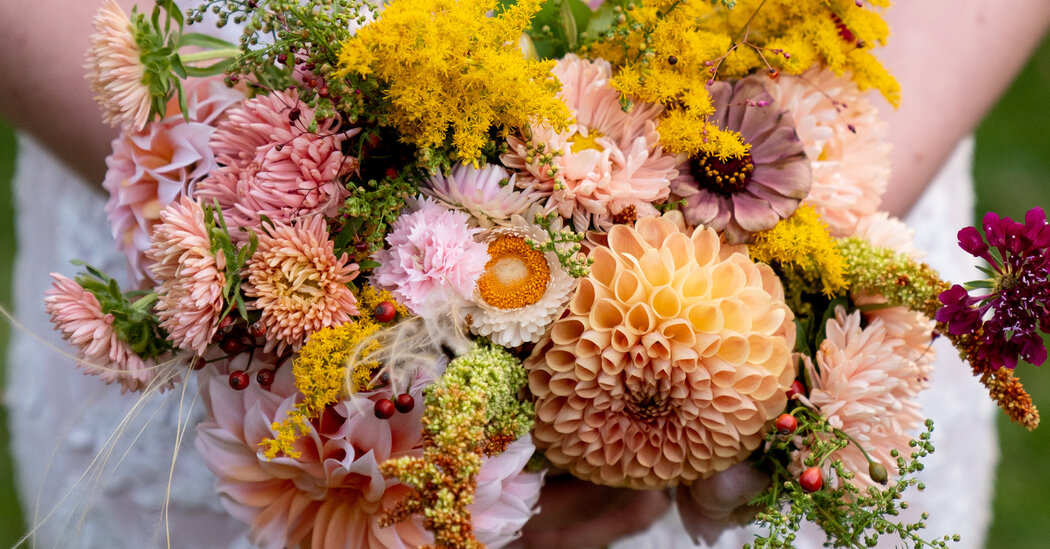
When Erin Tobiasz, a children’s librarian in Pittsburgh, was planning her September 2022 wedding with Matt Oas, a lawyer, she thought about the goldenrod growing in the fields outside the library where she led story time in the fall.
“It just looks like Pennsylvania,” said Ms. Tobiasz, 37, a youth services manager at C.C. Mellor Memorial Library. She decided to include the yellow flowering plant in her bridal bouquet, along with Jewels of Opar, foraged rose hips, zinnias and Chabaud La France carnations. All were sourced from local flower farmers.
“I had roots in Pennsylvania but my family did not, so it was a neat way to introduce my family to the area that I’ve been living,” said Ms. Tobiasz, who has lived in Pennsylvania for 13 years. Every September when she sees goldenrod, she said, she is reminded of her wedding.
Ms. Tobiasz and Mr. Oas, 38, are among many couples using locally grown flowers for their weddings. Local growers offer brides and grooms a more sustainable option over imported flowers, often without the use of preservatives or harmful pesticides, while also allowing them to personalize their nuptials by marking a season and a location.
“The level of customization that can happen with local flowers is completely different than ordering from, like, Amazon, these big national and international wholesalers,” said Jessica Stewart, a florist and the owner of Bramble & Blossom in Pittsburgh, who worked with Ms. Tobiasz and Mr. Oas.
Most florists requesting, say, peonies from wholesalers will often have to order the same shade and size in bulk. Buying from several small, local farmers offers florists a variety of sizes and shades, creating a more dynamic color palette. “Pinterest culture tells couples that luxury comes from replicating a design from someone else’s wedding, but I think the opposite is true,” Ms. Stewart said. “Finding a peculiar flower, what others might call a mutant, enriches the design.”






